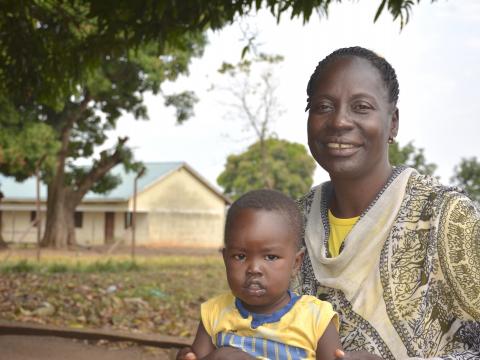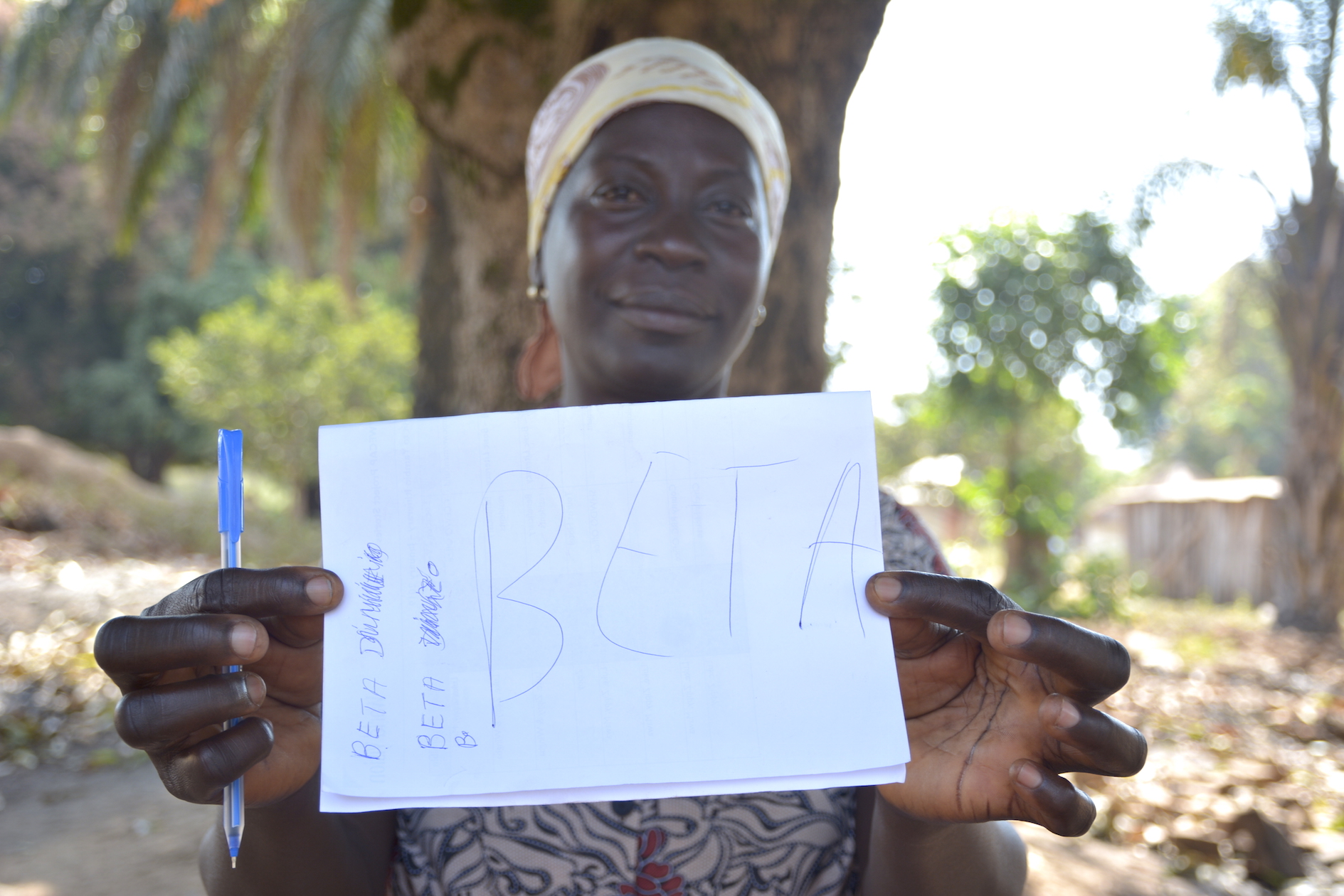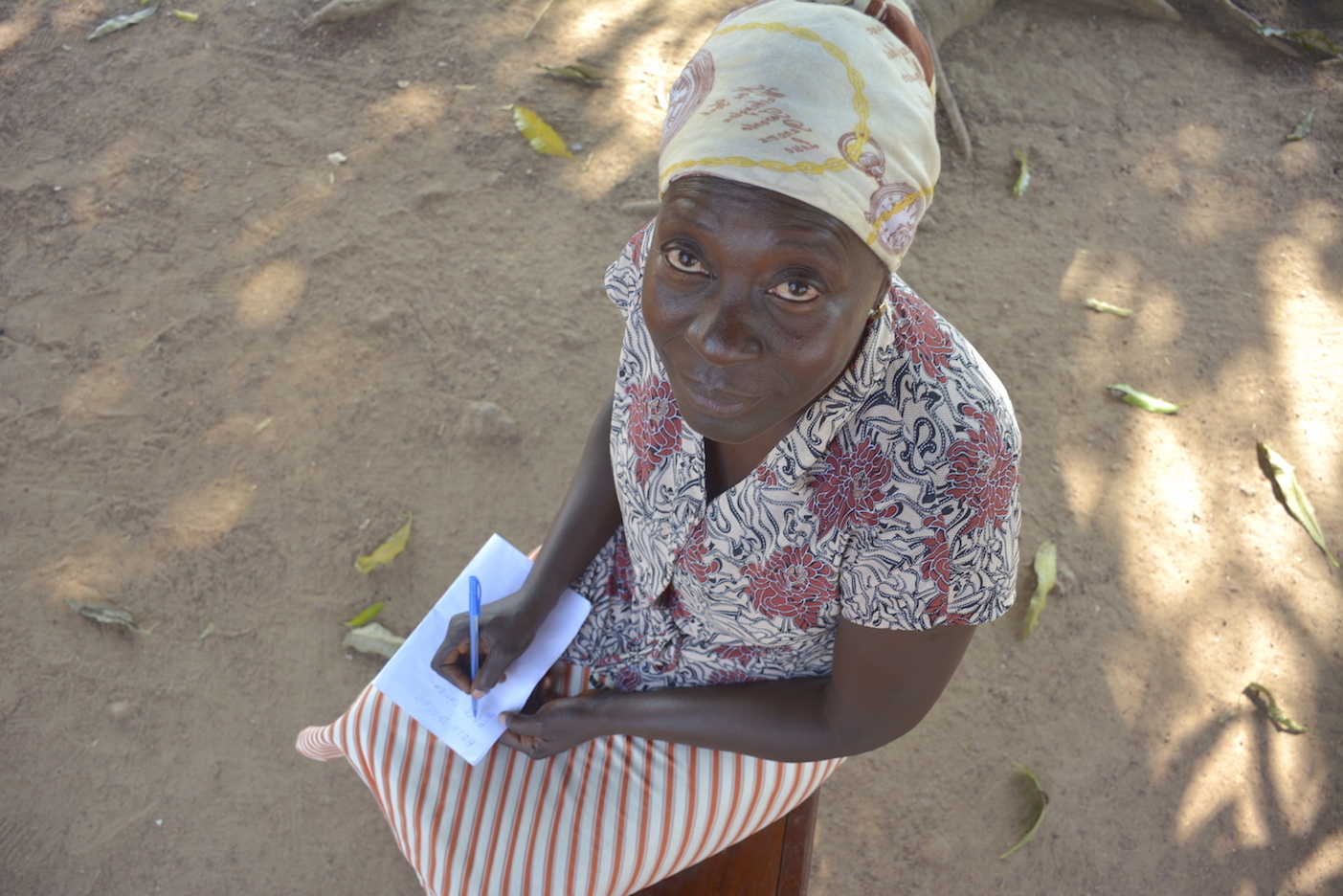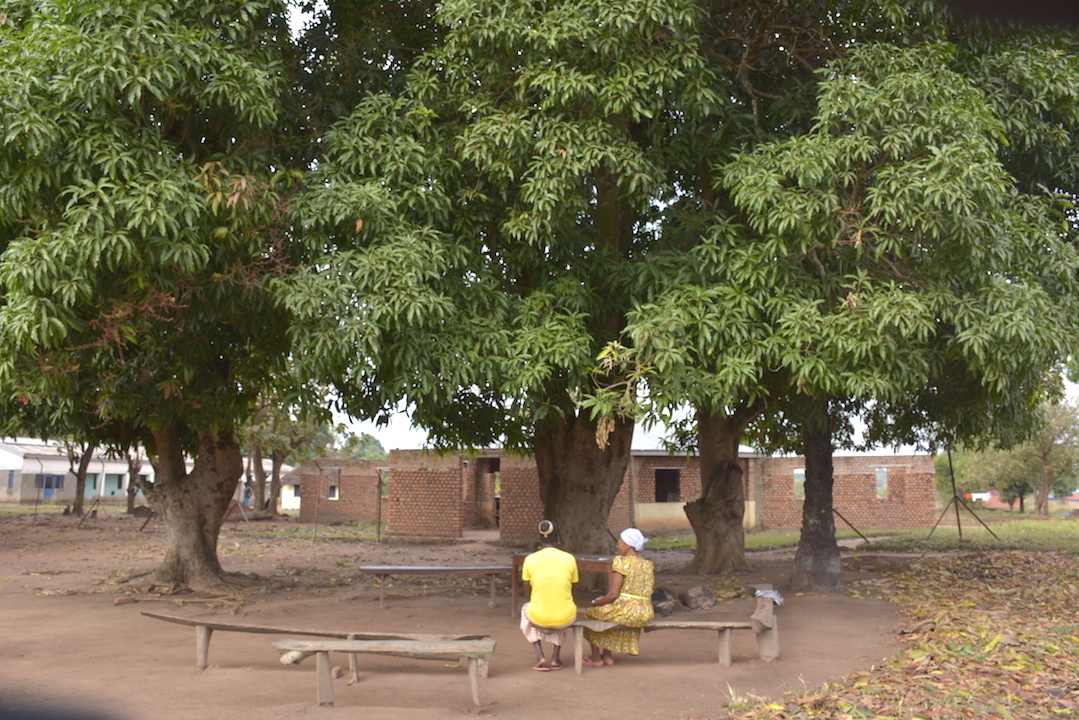Beta learns to write at 46 and fulfills a lifelong dream to go to school

A tree branch stuck in the ground is one of several poles making up a bench inside a classroom constructed under a big mango tree. A table was placed in front of the classroom for the teaching books and writing chalks. The students who do not have a place to write used their laps as a table top.
But 46-year old Beta does not mind the environment around her at all. What was important for her was listening and learning. Starting the adult literacy classes was the first time she was able to write her own name in an exercise book. It is also a significant moment for her to sit in a classroom.
“I could not sleep before my first day to attend school. I had mixed emotions of how important the value of education means to me,” says Beta

Growing up in South Sudan during the 1970s meant Beta did not get a chance to go to school. Her family escaped conflict and fled to a neighbouring country. Sadly, her parents did not enroll her at a school and instead sent her to live with a relative who kept her at home to do the domestic chores rather than support her education. What made things even harder for her was the children of the relatives she was living with went to school each day.
“I used to cry because I stayed at home working as I watched them go to school with the rest of the other children in the neighborhood. I fetched water and cleaned the house for the family every day,” says Beta.
Beta now has six children, the oldest of whom is 20 years old. She learnt about the Basic Education Literacy Project through an announcement at a church. The project is supported by World Vision’s Western Equatorial Civil Society Capacity Building Project (WECAP) that has enabled training the staff from a local Civil Society Organization (CSO) called Consultant Centre for Empowerment and Welfare Organiszation (CCEWO) who implement the literacy project.
“We noted limitation in basic technical skills from the staff within the organization that limited their operational and funding capacity”, says WECAP Project Manager Mawa Isaac.
However, changes began last year when the WECAP project selected the CSO and helped identify their priority organizational capacity development needs and gaps in order to transform and improve their project activities.

“We engaged with WECAP as we realized our capacity was not good enough to manage our organization. We were working in a silo and our organizational statement had a lot of gaps that needed to be addressed while working in the community.” says Executive Director of CCEWO Wingba Benedict.
WECAP does not support the community directly but uses a plan of action through formal training, organizational development, mentorship, coaching and technical assistance to train the CSO staff on individual professional skills and expertise on work related issues. This strengthens the staff professional competency and enhance the capacity for quality programming that better serves the CSO during implementation of projects in the community.
“The WECAP project helped make us be who we are. Through the knowledge that have we acquired from the trainings, we have learnt how to lobby for grants from key donors. We are off to a good start,” says Executive Director of CCEWO Mr. Benedict.
Beta and 50 other women were selected from a group of vulnerable women to give them an opportunity get basic education. Beta has now been learning English for one year and remains dedicated to her learning and empowered through her education.
“I am committed to continue to learn and speak English and to practice the language with other people including my customers. I am a small-scale trader selling cooking oil and other goods including porridge in the village market in Yambio,” says Beta.
Since the start of 2018, World Vision has implemented a number of capacity building initiatives for local civil society organizations in Yambio with funding from the governments of Netherlands, Sweden and Norway through Ecorys and the Civil Society Facility, South Sudan.
